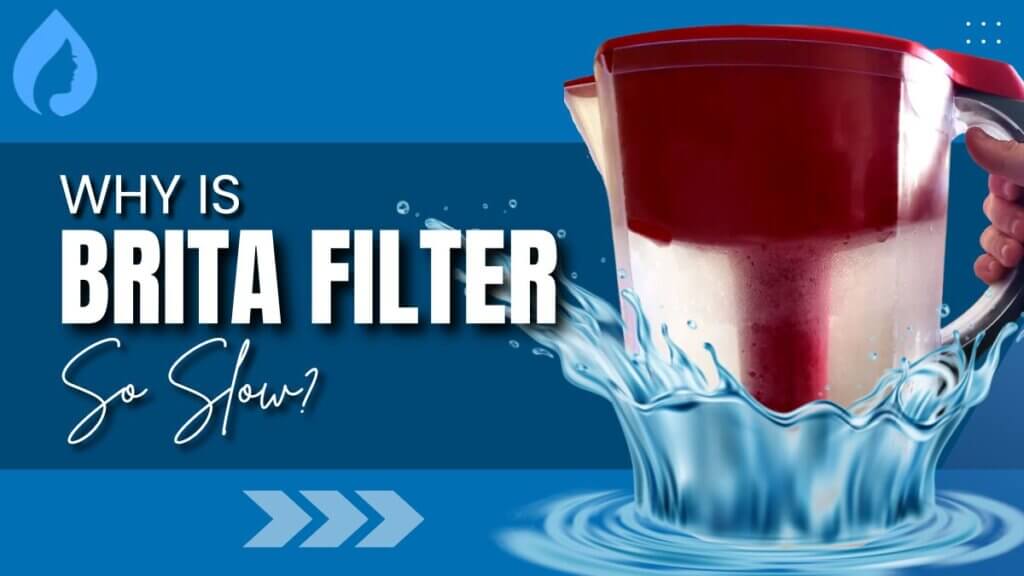
Brita filters are installed to remove contaminants. They work to remove lead, asbestos, and other particles, but like everything in this world, they aren’t perfect.
I found 10 reasons why my Brita filter is so slow. Let’s dive straight into the solutions:
- The Ultimate Cheat-Sheet On Brita Filter Being Slow: Ranked And Compared
- Why Is My Brita Filter So Slow: Reasons For Brita Filter Slow Working
- 1. Error In Filter Change Indicator
- 2. Brita Filter Slow? It’s The Air Bubbles!
- 3. You Didn’t Flush The Filter Before Use!
- 4. Brita Filter Needs Replacement
- 5. Your Valves Are Clogged!
- 6. You Haven’t Checked The Expiry Date Of Your Filter!
- 7. Extreme Use Of Brita Filters
- 8. Incorrect Filter Set Up
- 9. Decreased Pressure From The Faucet
- 10. High Sediment Concentration
- Why Is My Brita Filter So Slow: FAQs
The Ultimate Cheat-Sheet On Brita Filter Being Slow: Ranked And Compared
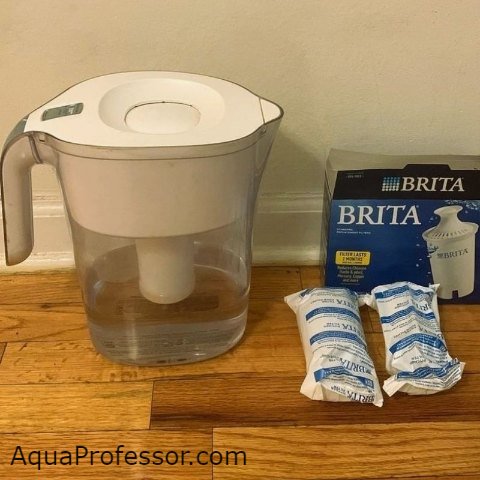
I have compared the various reasons which could cause Brita filter to become slow. I have arranged them in the form of a table, starting with the easiest fix:
| Issue | Ease | Effectiveness | Needs a professional |
| Incorrect filter indicator | 5/5 | 4/5 | No |
| Air blocks | 4.5/5 | 4/5 | No |
| Flushing issues | 4/5 | 4/5 | No |
| Filter needs replacement | 4/5 | 4/5 | No |
| Clogging | 3.5/5 | 4/5 | No |
| Expired filter | 3/5 | 3/5 | Depends on what you choose |
| Extreme use of filter | 3/5 | 3/5 | Depends on what you buy |
| Incorrect setup | 3/5 | 3.5/5 | No |
| Decreased faucet pressure | 2/5 | 2/5 | Yes |
| High sediment concentration | 2/5 | 3/5 | Yes |
Also Read: 7 Natural Ways To Test pH of Water
Why Is My Brita Filter So Slow: Reasons For Brita Filter Slow Working
Now I will elaborate on the issues causing the Brita filter to slow down along with solutions as promised:
1. Error In Filter Change Indicator
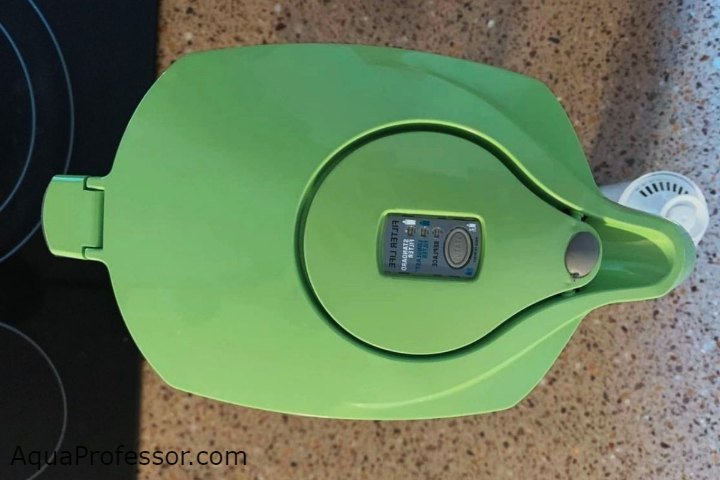
Most Brita products have a filter replacement indicator to help determine the exact time to replace the filter. A green light on the status button indicates that the filter is working correctly, and a red light indicates the time to replace the filter.
If the indicator does not work correctly for some reason, the Brita filter replacement time will expire, and the longevity filter will slowly clog. You can check this on your status button.
Also Read: PUR Water Filter Light Troubleshooting Tips
Therefore, you need to change the old filter products and press the reset button for a few seconds to reset the display.
Release the reset button when the three lights start blinking simultaneously. Always note the red dot in the right corner. It means the indicator is working correctly, and you can be assured of clean and great-tasting water from your status button.
2. Brita Filter Slow? It’s The Air Bubbles!
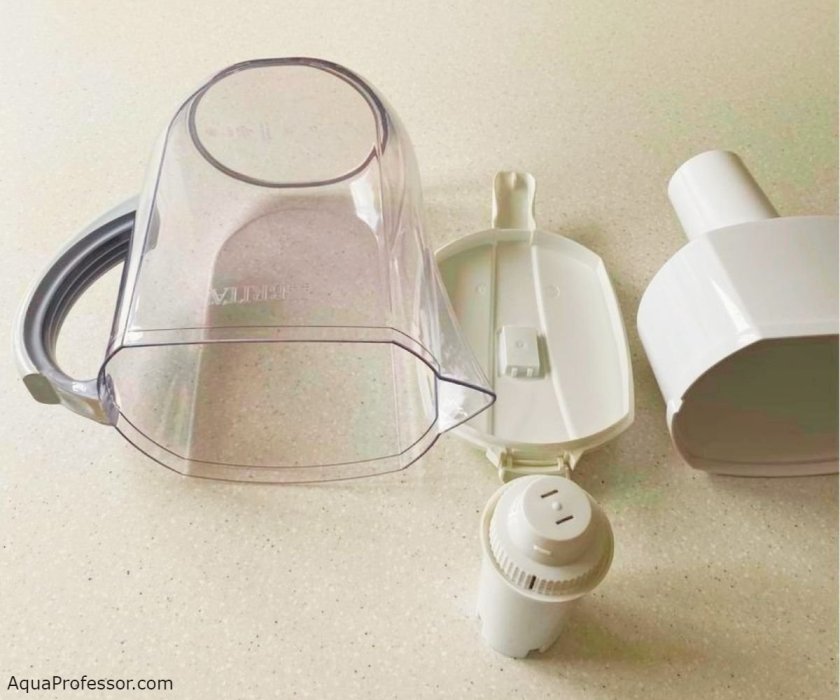
Quite a few times, air bubbles get trapped inside the pitcher filter, leading to a slower filtration rate. You can check if any bubbles are trapped by dropping them in a hot water-filled sink or jar.
If the filter floats, it signifies that there is an air block. Soak the filter in cold tap water for 15-20 minutes exactly to remove the air block. Then rinse it under a running water distiller for 20 seconds and return it to its original position.
Also Read: Does Zerowater Filter Remove Flouride
If that does not work, leave it under cold water and tap it on the side of the sink to loosen the foam. Check again to see if it sinks, then put it back in the pitcher.
3. You Didn’t Flush The Filter Before Use!
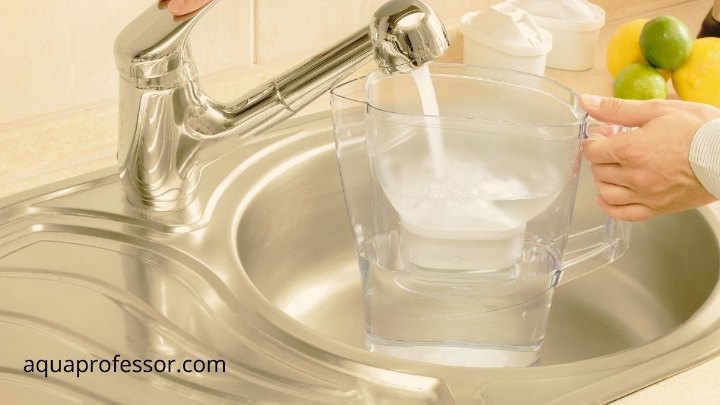
You may not know, but you can’t use your new Brita filter directly. Before the first use, you have to flush it for optimal performance.
For the Tap Faucet:
For the Standard, Longlast, Brita Stream, and Bottle faucets:
Important: Beverages like coffee and soda can slow down the filtration process of Brita filters. If you want your filters to work correctly, don’t try to “filter” any beverages through them.
Also Read: The Ultimate Cheat-Sheet on Cleaning Brita Pitcher
4. Brita Filter Needs Replacement
Delaying the replacement of the Brita Stream filter can slow down the filtration rate. The company has advised monitoring the life of the device by observing the filter replacement indicator.
Here’s what you need to do:
Remember:
You need to program the set-up individually for each filter to ensure a good performance using the green light. You can check the filter life indicator for information.
Check the sediment in tap water by examining a glassful of water using the filter change indicator.
There are various setups for standard, long load, and stream filters. Here is a quick list of how often you change the Brita stream filter by looking at the function and replacement time of each:
| Name | Function | When to replace it |
| Brita Standard Filter | Removes mercury, copper, chlorine, cadmium, zinc | 2 months (every 40 gallons) |
| Brita Longlast Filter | Removes lead, mercury, benzene, chlorine, cadmium, asbestos | 6 months (every 120 gallons) |
| Brita Stream Pitcher | Removes chlorine, particulates, trichlorobenzene | 2 months (every 40 gallons) |
| Brita Bottle | Removes chlorine, particulates | 2 months (every 40 gallons) |
| Brita Faucet | Removes lead, mercury, chlorine, benzene, asbestos, particulates, trichlorobenzene, TTHMs | 4 months (every 94 – 100 gallons) |
5. Your Valves Are Clogged!
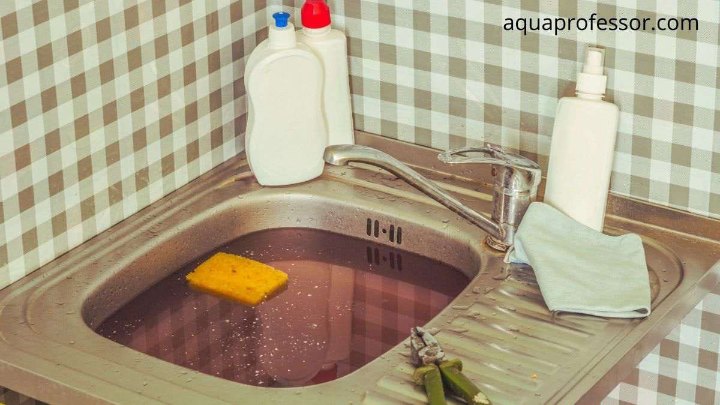
If you set up numerous valves, like a twin, take a look at the stress-proscribe valve. You have to ensure that the stress-lowering valve isn’t always in too low a position in your Brita stream filter.
The stress proscribing valve may be clogged and affect your Brita stream filter flow rate. It may be linked to the delivery machine earlier than the filter, so make sure of this.
6. You Haven’t Checked The Expiry Date Of Your Filter!
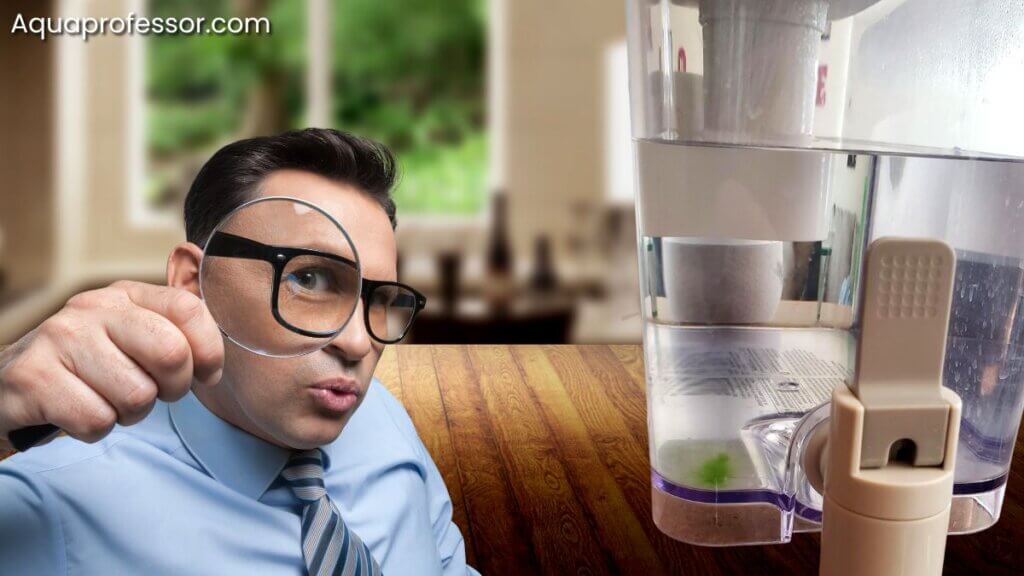
It’s safe to keep an eye on the expiry period of your filter. Do not buy extra filters so much in advance that they expire by the time you get to use them.
If you still miss the expiry date somehow, there are ways to detect that you should replace them. You can confirm this by observing the given conditions:
If you face any of these issues, you should immediately replace the filter cartridges to avoid health problems and ensure clean water quality.
7. Extreme Use Of Brita Filters
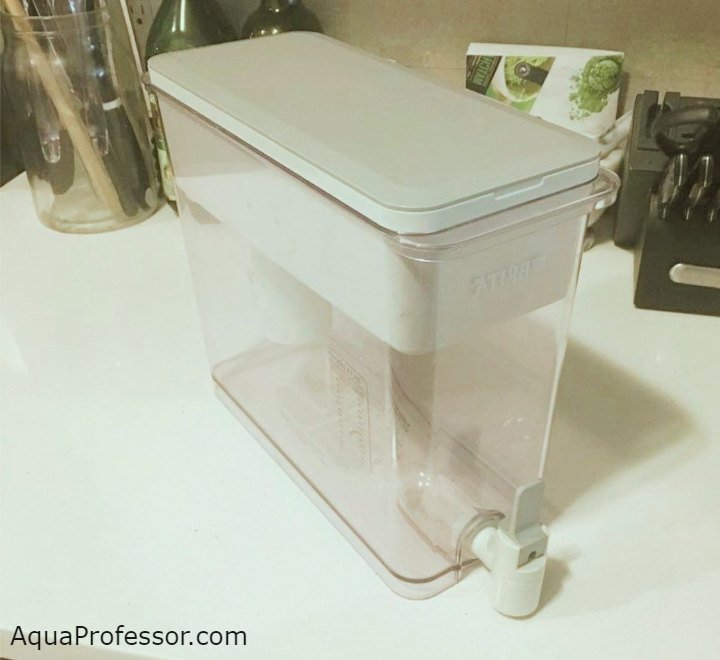
You will often use your Brita filter if you have a big joint family. Such excessive use reduces its lifespan, and you should replace it before the given duration.
You can refer to the table above to calculate the filter replacement time.
Note: The figures in the table are just an estimate for all the products. The actual usage may vary from person to person.
If you have a standard Brita filter and use 40 gallons of water within a month, you will need to change the filter more often (at least once a month).
Moreover, your filter life indicator will notify you with a red light that it’s time to change the filter.
8. Incorrect Filter Set Up
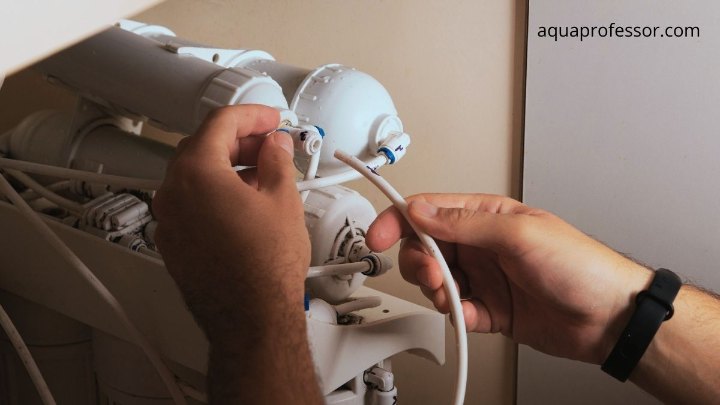
It’s pretty obvious. An incorrect setup can never deliver optimum performance, so study the assembly guide carefully.
You can also decide to ask a Brita stream personnel to do the work for you.
Note that the usual and Brita Longlast filters have different setups. In each case, pay attention to the “snap and click on” as you twist it into its place.
Click on this video guide link for a complete tutorial on Brita Filter set-up.
In addition, make sure the O-ring/gasket seal has been seated well in your filtration system.
9. Decreased Pressure From The Faucet
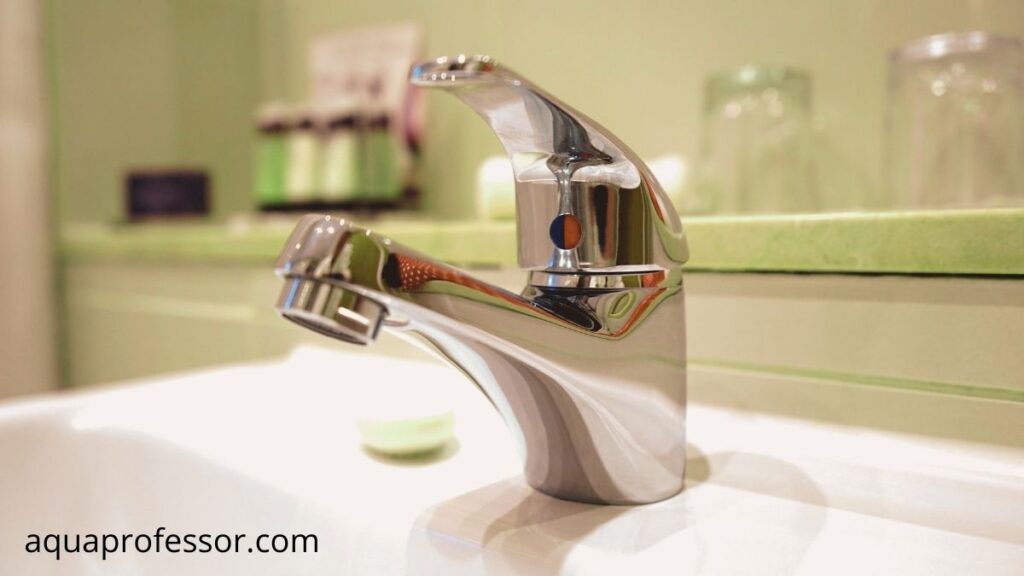
Apply this method if you are using a Brita faucet filter.
Know for certain:
The filtration process in the Brita filter depends on the tap water pressure. Low tap water pressure will slow down the filtration process, and you start blaming Brita rather than finding the cause for low water pressure.
I know that my readers are intelligent, so they don’t complain. They look for solutions. So, you can check for impurities and leakages in the pipeline to improve tap water pressure.
Also Read: Top Tankless RO Systems
There are a few more things to do:
10. High Sediment Concentration
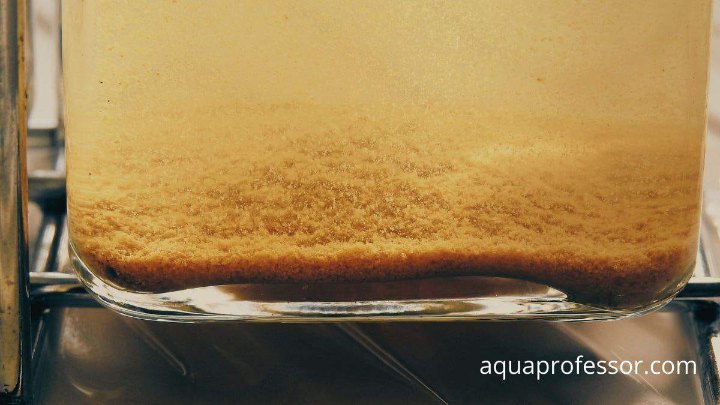
I know you purchased Brita filters, thinking they would remove impurities. But as it turns out, Brita isn’t a superman.
Excessive sediments in tap water can clog the Brita filter, delaying filtration by around 20 minutes.
Here’s how to check sediments in tap water:
Fill up a glass of water directly from the tap and leave it on the counter for 3-5 minutes until you see a green light.
If you find muddy deposits at the bottom of your product’s bottle, it means that you need to filter the water again to improve its quality.
Also Read: What's Wrong With Brita Filters Reddit
So if you find your tap water has a high sediment concentration, replace your filters more frequently.
Why Is My Brita Filter So Slow: FAQs
How fast should a Brita filter work?
The speed of filtration depends on your filter health or how well you maintain it. Some Brita pitcher models filter water in 1.25 minutes, while others may take upto 15 minutes. So on average, the Brita pitcher filters water in around 10 minutes.
How to increase the lifespan of Brita filters?
By keeping your Brita filters clean, you can easily prolong their lifespan. Additionally, taking care of your filter ensures that it functions correctly. So, just replace the charcoal periodically and store it in a clean and dry place away from sun exposure.
How to tell if your Brita Filter is faulty?
You will eventually know when your Brita filter is faulty as it contains the following warning signs –
1. The water is smelly.
2. The filter is parched.
3. The taste changes.
4. Presence of mold in the filter
How long does Brita Pitcher Filter last?
Different Brita Pitcher filter models have different replacement timelines. Mostly, 2 months or 40 Gallons is the average time for many households to change their Brita filter. Other models can last for 4 to 6 months. It may vary a little according to your water demands. So, check your water quality periodically to ensure a consistent, clean water supply.
Why is my Brita filtering so fast?
It may be due to the following reasons:
1. Faulty or Expired Filter – If Brita is filtering too fast, it is a sign that there may be some cracks or leaks within the filter. Expired filters, too, lose their filtration capability and let water pass quickly. The water’s taste, smell, or appearance will tell you something is wrong.
2. Your area’s water is already very clean – It is usually rare though possible. If the water supply has no or minor contaminants, it will filter out very quickly through your Brita filter.
3. Filter is still brand new – Brita filters contain porous charcoal, which takes time to adjust. Water will pass quickly through a new filter as the pores are not clogged yet.
If you suspect missing parts in your filter, immediately convey your concerns to Brita’s customer support.
Finally, all I have to say is:
Brita offers good customer service and delivers some of the best filtration solutions on the market right now. Defects can be present both in the unit you are using or in your water supply.
Anyway, I tried to help you with your common slow Brita filtration problems in this cheatsheet-cum-guide.
Your feedback will help me keep this article updated for everyone’s benefit so do share your insights in the comments below!
Adarsh is a Health & Nutrition Sciences graduate with expertise in environmental health. He is associated with ventures like Glacier Fresh Filter and Simpure Filter Systems. Through Aqua Professor, he intends to provide helpful information to every home to help them make smarter decisions.

…Is the ‘Pitcher’s Reusable Timer’ set for a 30-Day Month…?.
Will it say/indicate to change filter, in 30-Days if it was only used 15-20 Days of the 30-Day Timer Month…?!
You can adjust the timer as per your filtration usage. Refer to product manual for specific details.
I took old filter out of my pitcher… then wet the new filter .. now I don’t know which is which… as I had a distracting phone call while doing this. Is there any way to tell which is the old filter??? Or new filter
Hey Joy, The old filter must be visibly dirty at the bottom (like this) and the new filter will not be so you can identify like this.
Wait wait “bloodless water”? What prompted that phrase?
Changed it. Thanks for pointing out!